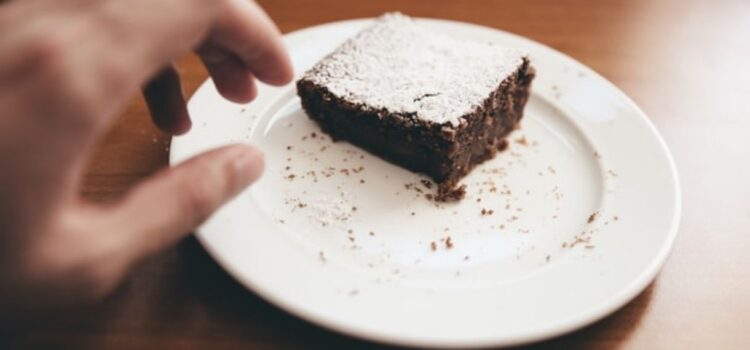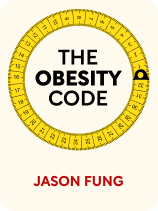

This article is an excerpt from the Shortform book guide to "The Obesity Code" by Jason Fung. Shortform has the world's best summaries and analyses of books you should be reading.
Like this article? Sign up for a free trial here .
What is the best diet for an obese person? What are some things you should avoid eating if you suffer from obesity?
Beating obesity involves a combination of lifestyle and dietary changes. In brief, a slimming diet involves eating whole foods, avoiding added sugar and refined carbohydrates, and consuming a moderate amount of protein and good fats.
Here are four obesity dietary changes you must make.
Change #1: Avoid Added Sugars
When it comes to beating obesity, dietary changes should be your first consideration because exercise has a minimal effect on your weight. The first change you should make is eliminating added sugars. Forego sugar-sweetened drinks such as soda, refrain from snacking on sugary snacks such as candy, and avoid sugary breakfast foods. Feel free to enjoy quality desserts, like bakery-made cakes and cookies, on special occasions, but not every day.
The alternatives: Instead of consuming sugar, choose unsweetened drinks and foods. Snack on nuts and fruits in moderation, and choose unsweetened coffee, tea, or water. For breakfast, choose healthy foods such as a vegetable omelet. For dessert, enjoy a square of dark chocolate with cacao content over 70%.
(Shortform note: While Fung takes a nearly zero-tolerance approach to added sugars, Gin Stephens argues in Fast. Feast. Repeat. that you can enjoy treats more often. She recommends that you “delay, don’t deny”—that is, wait to eat your favorite desserts rather than avoiding them altogether. If you keep them to, say, the weekends, you can still lose weight.)
Change #2: Avoid Refined Carbohydrates, Primarily Wheat
Flour-based foods spike insulin levels and drive obesity. By removing them from your diet, you increase your chance of beating this disease. According to Fung, refined wheat products have no place in a healthy diet. While whole wheat retains some protein and fat, it’s still a highly refined powder that will spike insulin.
The alternatives: Instead of consuming refined carbs, choose whole carbs and eat them in moderation. This means many vegetables—such as tomatoes, broccoli, and zucchini—and healthy seeds and grains. In particular, Fung recommends quinoa, chia, and beans, all of which contain carbohydrates, fiber, protein, and various micronutrients.
(Shortform note: One doctor advises against certain fruits and vegetables. In The Plant Paradox, Steven Gundry argues that lectins, compounds found in some fruits and vegetables as well as meat, dairy, and certain medications, are at the root of many modern health problems, including obesity. He asserts that lectins are toxic and lead to long-term health consequences such as joint pain and obesity. His “PPP” diet involves removing from your diet any foods that contain lectins—including potatoes, grains, beans, and seeds such as chia and quinoa.)
Change #3: Choose Healthy Proteins and Fats
Fung recommends eating 20% to 30% of your diet as protein. In his view, high protein diets are difficult to follow, since isolated protein is difficult to find in whole food forms and forces you to rely on artificial substitutes, such as protein powder. Choose grass-fed meats, wild-caught seafood, and whole, vegetable proteins. For fats, choose unprocessed fats including olive and coconut oils, natural lards, and fatty foods like avocados. Healthy fats stimulate insulin the least and may protect against obesity.
(Shortform note: While Fung asserts that saturated fats have been unfairly demonized, the science is not conclusive on their health effects. To play it safe, experts recommend limiting saturated fats from meat, eggs, and dairy and instead consuming unsaturated fats from plant sources. When it comes to protein, research links consumption of plant proteins to reduced risk of stroke, cancer, and heart disease compared to consumption of animal proteins.)
Change #4: Eat Foods That Suppress Insulin Spikes
Some foods, such as those high in fiber, can offset the insulin stimulation caused by carbohydrates and proteins. Fung recommends consuming whole, fibrous foods such as fruits and berries, seeds, and whole oatmeal. In addition, vinegar and fermented foods, such as kimchi, reduce insulin spikes and help you feel fuller. (Shortform note: While fermented foods are known for their health benefits, they aren’t free of downsides. For instance, kimchi has the potential to develop harmful bacteria and has been linked to outbreaks of E. coli. In addition, it has high sodium content that may not be appropriate for everyone.)

———End of Preview———
Like what you just read? Read the rest of the world's best book summary and analysis of Jason Fung's "The Obesity Code" at Shortform .
Here's what you'll find in our full The Obesity Code summary :
- Why everything we were taught about obesity is wrong
- The theory of obesity as a hormonal disorder that causes overeating
- Why dieting doesn’t work and exercise actually has little impact on weight loss






